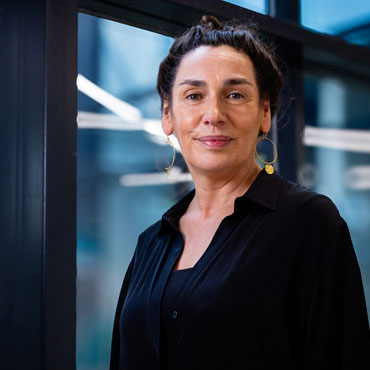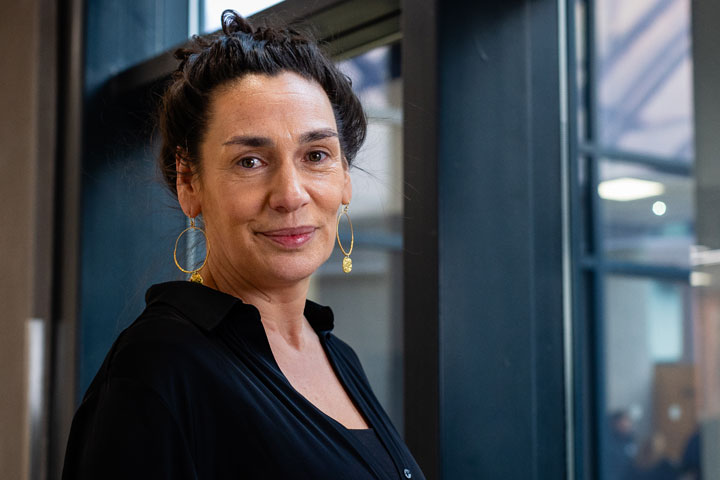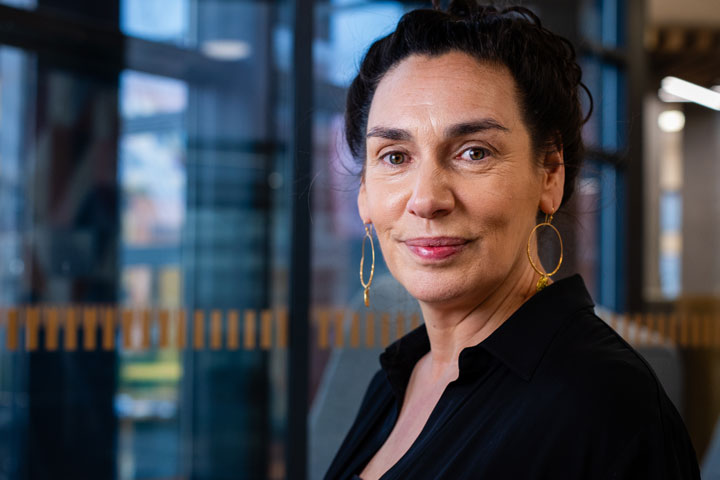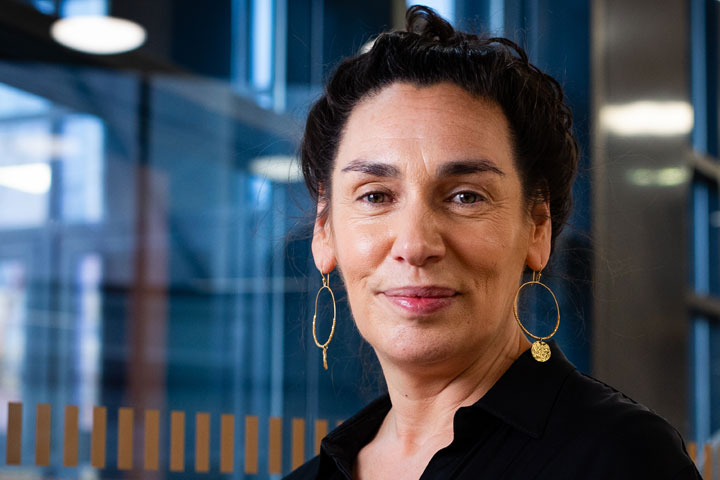Lucy
MSc Social Sciences Research for Healthcare
Working in the media industry for almost three decades, Lucy had never considered a career in healthcare until a personal experience changed her perspective.
After successfully completing the MSc Social Sciences Research for Healthcare at Bradford, Lucy now works for a healthcare charity as a programme manager.
This is her story.

The career that I worked in for almost 30 years was very different from my Master's.
My previous career
"After completing an undergraduate degree in Media Studies and Theatre in the 1990s, I pursued a rewarding career in the arts, digital media and television."
"I worked my way up to commissioning roles at Channel 4 and the BBC.
"Although I had never been particularly drawn to the sciences or healthcare, this changed when a close family member went through a major health crisis.
"I left my job to help care for them, and through this experience, I developed a passion for improving patient and public involvement in healthcare.
"However, I had no background or qualifications to help me turn this newfound passion into a successful career."
A leap into confidence
"Rather than completely retrain, I first decided to use my existing background in digital media."
"I worked on projects where the public and patients could be involved in the co-production of new healthcare resources.
"While I was successful in securing employment, I lacked confidence because I didn’t have any formal experience or academic qualifications in the healthcare sector.
"This was pivotal, prompting my decision to take the leap and go back to university."

Flexibility in learning
"I completed the course part time over two years while continuing to work."
"It’s important for people to know that this is an option – you don’t have to leave your career behind to pursue further education. This flexibility makes the course more accessible to a wider range of people.
"It’s a relatively new, multidisciplinary course that allows you to customise your studies to suit your personal interests. For example, one of my classmates researched the intersection of archaeology, dementia, and virtual reality.
"This flexibility was also reflected in the diversity of the student cohort.
"We had students fresh from their undergraduate studies, those using the course as a stepping stone for their PhDs, and a number of healthcare professionals undertaking their Master's to support their transition into specific health research areas."
I chose Bradford because it’s near to where I live, and was the only place offering this Master’s course.
Interdisciplinary approach
"While I was already working in public health, my goal was to bolster my knowledge of how evidence informs policy and practice and can reduce health inequalities."
"This Master’s takes an interdisciplinary approach with a strong focus on developing research skills and methodologies.
"The programme is taught in a way that’s directly applicable to healthcare research. This was reflected in the structure.
"Alongside the core modules, where you learn about quantitative and qualitative research, mixed methods, and ethical practices, there was also the option to build elective modules around your own needs and interests."

Gaining a practical understanding
"One of the highlights was an elective module on mental distress, which is part of the BA and MA Social Work programmes."
"It was brilliant to have the opportunity to take this module as part of my Master's. It was incredibly well taught and featured a diverse line-up of visiting speakers from the sector.
"Hearing the first-hand accounts of practising professionals enhanced my understanding of the skills we were learning and their practical applications in a vocational context.
"Collaborating with a broad, multidisciplinary team of lecturers equipped me for a real-world healthcare environment.
"I built a strong foundation in my areas of interest."
I focused on codesign in healthcare, public health and mental health.
Challenging and sharpening my thinking
"The course introduces a range of advanced research skills including quantitative, qualitative and mixed methods."
"It also fostered a range of multidisciplinary skills, from teamwork and independent research that challenged my discipline and creativity, to public speaking through presentations.
"Multiple reports and dissertations further honed my analytical thinking.
"My dissertation focused on digital skills and mental health, drawing heavily from personal experiences.
"This project involved interviewing a diverse group of patients, which required obtaining ethical approval and understanding how to conduct these conversations with empathy.
"I gained a deep appreciation for the importance of ethics, a skill I now apply in my current role."
Because of my Master's, I was able to apply for and successfully secure a role in healthcare research.
Where I'm working now
"I currently work as a programme manager, where having a Master’s degree was listed as desirable."
Without my Master’s, I would not have had the confidence to even apply for this position.
"What has really stood out to me is how important and transferable the skills I developed during the course have been.
"In my role I need to have an understanding of healthcare research, evidenced-based practice and ethical development approaches - all topics that I worked on during my time at Bradford."
Support at Bradford
"While I found the Master’s challenging, I received excellent support from Bradford to help keep me on track."
"Initially, I never considered pursuing a PhD after completing the course.
"But having worked in my current role and witnessed how effectively the skills from my Master’s translate to real-world applications, I now see the value in applying for a PhD.
"This reflects the quality of the course and its teaching."

